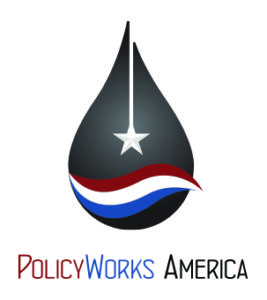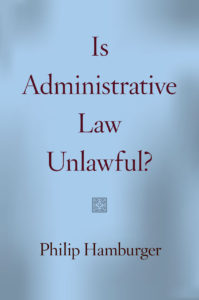Infidels at the EPA Inquisition
This is part 3 of a 3-part series.
Concluding this examination of bureaucratic overreach at EPA is an exercise in reflection. How did it get as far as it did? What did the companies do wrong? How could it have been avoided/settled/otherwise negotiated? Questions, questions, questions.
For commercial businesses, the court of public opinion, the court of investor opinion, the perception by governments, and especially employee opinions, are powerful motivators to model citizenship and proactive engagement. That good name is nurtured and tended with care and investment.
When called into question in confrontation with an aggressive (some would say rogue) government agency, the instinct for the accused is to seek understanding of any perceived misdeed, request a face-to-face to engage government and explain its actions and understanding of rules/laws, and to negotiate remedial action based on those rules and laws.
So…what could have been done differently by the accused North Dakota oil producers? Nothing.
North Dakota’s government and the state’s oil producers were playing EPA’s game of charades. The state and the producers believed the issues were air quality, facilities emissions and engineering standards. Wrong. Indictments and verdicts were settled, the only remaining element was size of penalty. The Noble settlement in Colorado was the operative model, end of story. Go quietly and cooperate, the penalty would be painful but manageable. Take legal action and it could be the gallows with the full force and weight of the EPA and DOJ aligned in opposition.
The words of EPA’s Chief of Enforcement, repeated here, deliver the proof: “…states often don’t enforce the laws within their own borders when the people primarily harmed live downwind or downriver in another state. States don’t want to spend their money or their political capital to benefit other states. The federal government has the responsibility to protect everyone — like the millions of people on the East Coast who suffer the effects from large air polluters in the Midwest.”
There is zero empirical proof of Cynthia Giles’ assertion. This characterization alludes to public suffering which can be laid at the feet of indolent state regulators in Midwestern states. The mindset is that only EPA vigilance and punishment of wrongdoers stand between the citizenry and choking to death on the product of chimneys belching soot and poisons.
One’s heart is wrenched by the thoughts of youngsters frolicking on the pristine streets of Newark, in the parks of Philadelphia and other bucolic venues only to be struck down by waves of pollution from evil industrial magnates in North Dakota, Kansas, Iowa and Michigan counting their ill-gotten millions like Scrooge McDuck in his swimming pool of money…or Gladstone Gander handing out wads of cash to pols on the take.
Only the EPA guardians of truth and right, and their helpmates at the Sierra Club, EDF, Wilderness Society and Earthworks lawsuit factories stand in defense of a helpless, victimized public.
The religion of the Greens demands that hydrocarbon producers be punished, neutralized and eventually subtracted from the landscape so that environmental nirvana might be achieved. No matter that air quality standards are met in great measure across the Midwest. No matter that air quality ills along the U.S. East Coast are largely self-inflicted.
Purity of purpose overrides scurrilous means to achieve the desired end. Deception in Congressional committee hearings, in dealings with state regulators, in negotiations with commercial enterprises, the stock in trade of the political left that commanded the EPA and Department of Justice enforcers for eight years, is necessary to defeat carbon producers.
The takeaway from this debacle is that fiefdoms across all levels of government are landmines to be avoided. They add almost nothing but expense and sand in the gears of society. Advances in quality of life, a cleaner environment and greater opportunity are outgrowths of innovation. They’re not the result of ham-fisted regulations, command and control dictates nor intimidation by ideologues growing their fiefdoms.
Philip Hamburger is the author of the 2014 book, “Is Administrative Law Unlawful?” This is a highly recommended read that delves into the gutting of the Bill of Rights and provides this colorful characterization of the power of the bureaucrat: “Administrative power is like off-road driving. It’s exhilarating to operate off-road when you’re in the driver’s seat, but it’s a little unnerving for everyone else.”
To read Part 1 of this series, please click here.
To read Part 2 of this series, please click here.


